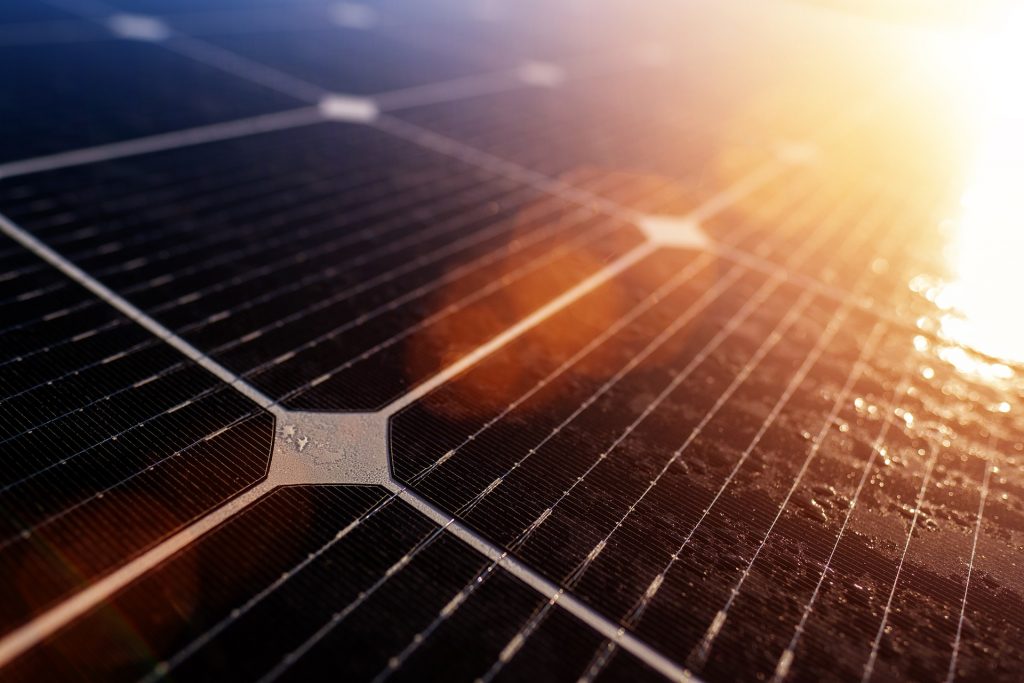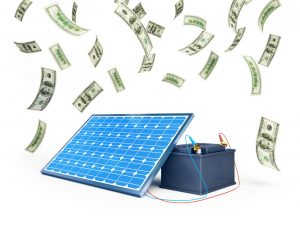It’s important to research solar energy before making the switch. A great place to start is with one of the foundational components; what kinds of solar panels are there? Solar panels come in three main types: monocrystalline, polycrystalline, and thin-film. There are unique benefits to each type of solar panel. Let’s review them so you can make the best choice for your home!
Monocrystalline
Monocrystalline and polycrystalline are made of silicon crystals. As the name implies, monocrystalline solar panels are crafted from a single crystal of silicon. This pure crystal silicon is difficult to create, upping the manufacturing cost of these panels. Because of this increased cost, these panels more expensive for consumers than their counterparts.
While they may be more expensive, monocrystalline panels feature superior efficiency. Of the three panel types, they are the most efficient. Higher efficiency means you could get more for your money and thus, a better return on your investment in the long run. If you want to equip your home with only the best when you switch to solar energy, Monocrystalline panels are the way to go.
Polycrystalline
Polycrystalline panels are made from pieces of crystalized silicon. Using multiple pieces of silicon instead of singular pieces makes them slightly less efficient than monocrystalline panels. However, they cost less to produce, making them more budget-friendly for the customer. If you want to get the most bang for your buck, Polycrystalline could be the way to go.
Thin-Film
Thin-film solar panels are made with a thin layer of conductive material. They are flexible and can be placed on more than just roofs. Thin-film panels cost the least to produce. While this type of panels is extremely versatile and relatively inexpensive, they are the least efficient option. This lower efficiency makes thin-film panels less popular in residential properties.
Need help deciding which type of solar panel to go with? One of our solar consultants will be happy to help you weigh all the pros and cons of each type so you can pick what’s best for your needs.
Do you want to learn more about solar panel installation? We’ve got a post for that!




